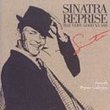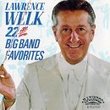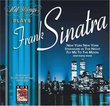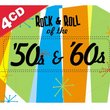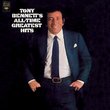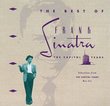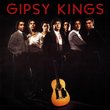| All Artists: Edward Elgar, Jean Sibelius, Johann II [Junior] Strauss, Charles Gounod, Richard [Classical] Wagner, George Frederick Handel, Giuseppe Verdi, Johann I [Senior] Strauss, Franz [Vienna] Schubert, Felix [1] Mendelssohn, Pyotr Il'yich Tchaikovsky, Sergey Prokofiev, Giacomo Meyerbeer, Hector Berlioz, Carl Nielsen, Ludwig van Beethoven, William [composer] Walton, Henry Purcell, Jeremiah Clarke, Carl Philipp Emanuel Bach Title: 40 Famous Marches Members Wishing: 0 Total Copies: 1 Label: Decca Release Date: 2/8/2000 Genres: Jazz, Special Interest, Soundtracks, Classical Styles: Swing Jazz, Marches, Opera & Classical Vocal, Ballets & Dances, Ballets, Chamber Music, Forms & Genres, Short Forms, Suites, Theatrical, Incidental & Program Music, Historical Periods, Baroque (c.1600-1750), Classical (c.1770-1830), Modern, 20th, & 21st Century, Romantic (c.1820-1910), Instruments, Keyboard, Sacred & Religious, Symphonies Number of Discs: 2 SwapaCD Credits: 2 UPC: 028946624128 |
Search - Edward Elgar, Jean Sibelius, Johann II [Junior] Strauss :: 40 Famous Marches
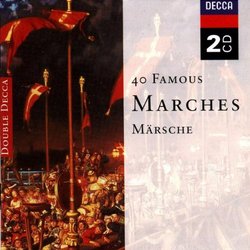 | Edward Elgar, Jean Sibelius, Johann II [Junior] Strauss 40 Famous Marches Genres: Jazz, Special Interest, Soundtracks, Classical
![header=[] body=[This CD is available to be requested as disc only.]](/images/attributes/disc.png?v=a4e11020) ![header=[] body=[This CD is available to be requested with the disc and back insert.]](/images/attributes/disc_back.png?v=a4e11020) ![header=[] body=[This CD is available to be requested with the disc and front insert.]](/images/attributes/disc_front.png?v=a4e11020) ![header=[] body=[This CD is available to be requested with the disc, front and back inserts.]](/images/attributes/disc_front_back.png?v=a4e11020) |
Larger Image |
CD DetailsSimilarly Requested CDs
|
CD ReviewsCAVEAT EMPTOR! Bruce P. Barten | 11/19/2001 (2 out of 5 stars) "Some of the selections which have been gleaned from various other recordings are quite good. The disappointment comes with the numerous selections performed by the Philip Jones Brass Ensemble. I am sure the performers are accomplished musicians in their own right. Unfortunately, the end result is somewhat akin to listening to Wagner, Fucik, Sousa, etc. being performed by a three-piece combo who have as of late finished an eight-week engagement in the lounge of the Holiday Inn on Route 39." Bold and brassy mixes well with the rest Bruce P. Barten | Saint Paul, MN United States | 08/14/2004 (5 out of 5 stars) "I am impressed most by the variety in 40 Famous Marches on 2 CDs, a Double Decca release. The performers include Philharmonic Orchestras, a Brass Ensemble, Chamber Orchestra, organ, Symphony, and for nine selections, the Wiener Philharmoniker. I am not sure if the word schmaltzy ought to be applied to any of this, but the Wiener Philharmoniker often exhibits a unique sound which is not quite the same as any of the other selections. The final five selections are all performed by the Philip Jones Brass Ensemble under Elgar Howarth in ADD/DDD format in 1983 and 1985. Two of those five are rousing marches by John Philip Sousa, another called `Entry of the Gladiators' is typical of songs played by live bands at circuses, and the remaining two are from movie soundtracks. `Colonel Bogey' is famous from the movie about British prisoners of war building a railroad bridge for the Japanese in World War Two, the Bridge over the River Kwai. The major source of variety in these 40 selections is that many of them are taken from operas and even a ballet, Tchaikovsky's famous `The Nutcracker--March.' I originally found this collection when I was searching for `Funeral March of a Marionette' by Charles Gounod (1818-1893) which has a theme that is famous from its use by a television series hosted by Alfred Hitchcock. If you can't remember how that goes, you ought to buy this collection and listen for it early: it is selection 4 on the first CD. The main theme was fun to play and easy to learn in a book of piano lessons, but the rest is quite whimsical and worth listening to, and people who play organ with pedal notes might still be able to find music for playing the entire arrangement, difficult though it is for someone like me, who becomes confused when too many things are going on at the same time. There was something on this CD that sounded weird, and I had to check to see what it was, and it was just someone playing the organ, but he was trying to play `The Ruins of Athens -- Turkish March' by Ludwig van Beethoven (1770-1827). Something by Handel sounds so much like the beginning of a movie that I expect someone to start singing, `The hills are alive with The Sound Of Music,' but this CD is something else. The first CD starts and ends with marches from `Pomp and Circumstance' by Edward Elgar, so people who have been to a lot of graduation ceremonies will be expecting plenty of familiar music. The 6:32 time is slightly longer than the Wagner's `Tannhauser -- Grand March' on the first CD, but long graduation ceremonies may play it even longer, until all the diplomas are handed out. Verdi, Strauss, Schubert, Prokofiev, Berlioz, these famous composers might be recognized by people who know music, but the `Wedding March' by Felix Mendelssohn is famous with everybody for what it is used for. If you haven't heard it lately, maybe you should hear it a few times so you won't be so nervous the next time it comes around." 40 MARCHES, 40 HOORAS! Gary | 07/19/2000 (5 out of 5 stars) "The eagerly anticipated reissue of some of these recordings has been well worth the wait! Decca is the only company that did them right. How? They went to the best orchestras! How appropriate that the London Philharmonic performs Elgar's Pomp and Circumstance Marches (#1 and #4)! And who, but the Vienna Philharmonic could give Schubert's Marche Militaire such a command performance (Knappertsbusch truly was a great conductor). Of course, let's not forget all the Strauss marches in this compilation, such as the Radetzky March (by the Senior Strauss) and the Persian March (by the younger Strauss)--all performed by the Vienna Philharmonic, under the direction of Willi Boskovsky. And the playing of the Orchestra of the ROH (Royal Opera House, Covent Garden) of Gounod's "Funeral March of a Marionette" in this set is probably the best ever recorded! However, besides these and the many other great performances, some of the choices made in the orchestral arrangement of certain pieces were inappropriate. For example, Beethoven's Turkish March from the Ruins of Athens was arranged for organ instead of orchestra. Same is true in Jeremiah Clarke's "Prince of Denmark's March", which was originally arranged for the trumpet. And "Colonel Bogey" without the whistling is boring. But on the whole, this is the best compilation of marches that's out there. Not to be MISSED!"
|

 Track Listings (20) - Disc #1
Track Listings (20) - Disc #1
